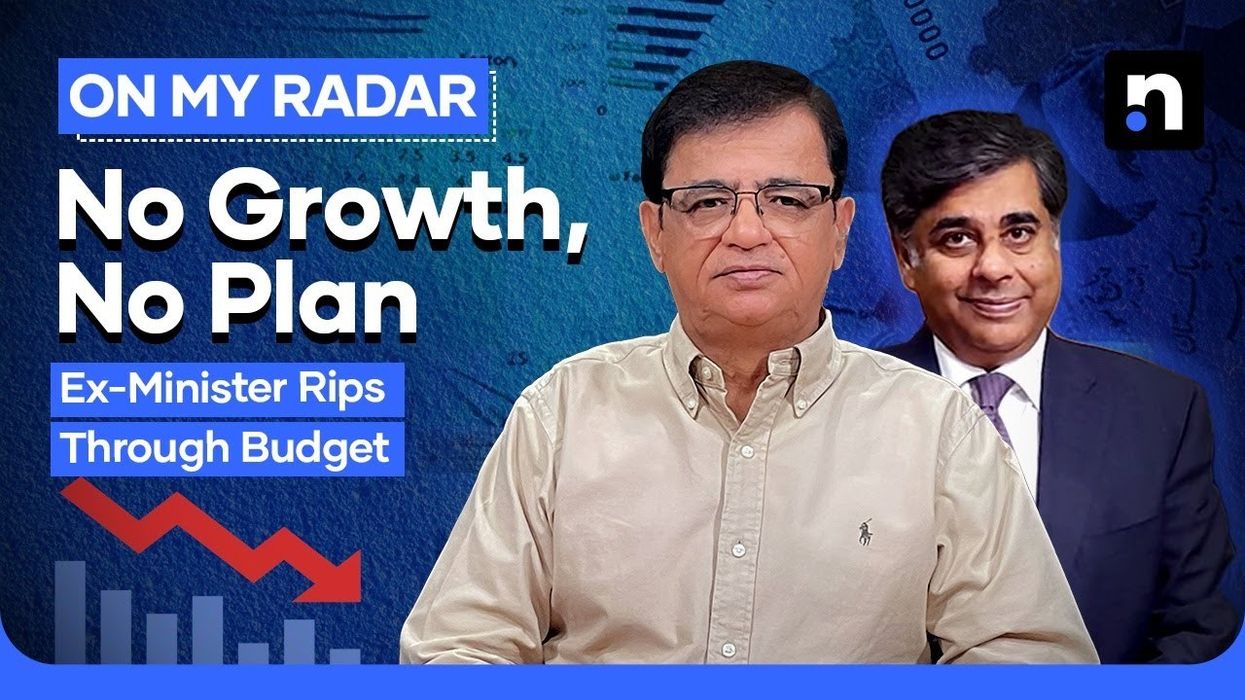Can Pakistan’s budget deliver on its promises?
Speaking in Kamran Khan's show, Gohar Ejaz discusses how the government can offer meaningful relief despite IMF constraints and limited fiscal space
News Desk
The News Desk provides timely and factual coverage of national and international events, with an emphasis on accuracy and clarity.
As Pakistan’s newly unveiled federal budget makes headlines, the country’s top economists, tax experts, and business leaders are dissecting its promises, gaps, and potential impact.
Over the last two days, these voices have weighed in on the pros and cons, offering a clear sense of where the budget delivers and where it falls short.
These insights were shared by Kamran Khan in the latest episode of On My Radar, where he explored the complex reactions to the budget. Interestingly, there’s a general consensus that the budget offers something, but perhaps not enough.
The Pakistan Stock Exchange, however, has responded with optimism, rallying for two consecutive days. At one point, the index crossed the 126,000-mark, signaling investor confidence despite broader concerns.
Investor optimism vs public concern
However, concerns are already beginning to emerge. Finance Minister Muhammad Aurangzeb, in a post-budget briefing, hinted at PKR 500 billion in additional taxes even before the Finance Bill’s formal approval, raising the alarm over a possible “mini-budget” in the making.
During discussions on OMR, economic experts supported the government’s clampdown on non-filers but emphasized the need for broader, more effective tax measures.
There’s no escaping the reality: the government must operate under crushing economic pressure. With PKR 17,573 billion in federal expenses to meet, including PKR 8,200 billion in interest on domestic debt and PKR 1,009 billion on external debt, taxation becomes an unavoidable necessity. While some sectors appear satisfied with the revenue measures, others remain unconvinced.
Sectoral frustrations and the road ahead
Exporters say the budget is more camouflage than clarity, lacking a real plan for economic growth. With electricity and gas prices soaring, they argue, boosting exports is a non-starter. The Federation of Pakistan Chambers of Commerce & Industry (FPCCI) also voiced disappointment over the absence of meaningful incentives for industrial or export development.
The Overseas Investors Chamber of Commerce & Industry (OICCI) called the 0.5% reduction in the super tax for corporates underwhelming. Cotton ginners expressed concern over the continued 18% sales tax on cotton but welcomed the removal of sales tax exemptions on imported yarn and thread.
In the tech sector, the Pakistan Software Houses Association (P@SHA) criticized the lack of relief for remote workers and IT exporters, citing the absence of a competitive tax environment. Meanwhile, digital business platforms warned that the imposition of 18% GST on e-commerce and online businesses could choke off opportunities for Pakistan’s budding retail startup ecosystem.
Given this backdrop, On My Radar features an in-depth conversation with Mr. Gohar Ejaz - former caretaker minister for Industries and Commerce - to explore how, within the constraints of the IMF program and current fiscal space, the government can still provide meaningful relief to the public, businesses, and industries.
The discussion also examines what concrete steps could be taken to broaden Pakistan’s tax base, particularly those that have yet to be implemented.











Comments
See what people are discussing